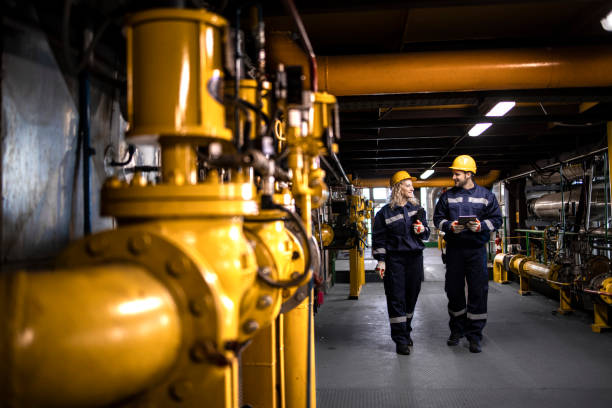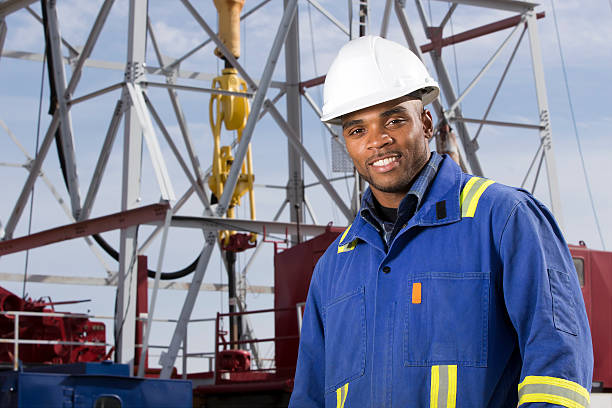7 Top Construction Jobs in Canada Offering Visa Sponsorship.
Canada’s construction industry is experiencing unprecedented growth, with a soaring demand for skilled workers to fuel its expansion. As major infrastructure projects and urban development initiatives continue to rise, there are abundant opportunities for construction professionals from around the globe. If you’re aiming to establish a career in a dynamic and rapidly growing sector, now is the ideal time to explore construction jobs in Canada that come with visa sponsorship.
In this guide, we’ll dive into the top 7 construction jobs in Canada that offer visa sponsorship, providing you with insights into the most sought-after roles and the steps to secure these opportunities. Whether you’re a project manager, civil engineer, or skilled tradesperson, Canada presents numerous options for those seeking a fresh start and a promising career in construction.
7 Top Construction Jobs in Canada Offering Visa Sponsorship
- Project Managers
Role and Responsibilities:
Project managers are pivotal in leading construction projects from inception to completion. They handle planning, coordination, budgeting, and supervision to ensure projects are delivered on time and within budget. This role demands strong leadership, organizational, and communication skills.Demand in Canada:
Canada’s construction surge has created a high demand for experienced project managers, especially in booming cities like Toronto, Vancouver, and Calgary. With numerous infrastructure projects in progress, companies are keen to hire qualified individuals to lead these ventures.Visa Sponsorship Opportunities:
Many construction firms in Canada are open to sponsoring visas for skilled project managers. Employers value candidates with international experience who bring diverse skills and perspectives to their projects. - Civil Engineers
Role and Responsibilities:
Civil engineers are responsible for designing, planning, and overseeing infrastructure projects such as roads, bridges, tunnels, and buildings. Their expertise ensures these projects are structurally sound, environmentally sustainable, and cost-effective.Demand in Canada:
With significant growth in infrastructure development, civil engineers are in high demand across Canada, particularly in rapidly developing regions like British Columbia and Alberta.Visa Sponsorship Opportunities:
The demand for civil engineers is strong, and many Canadian employers are willing to sponsor visas for qualified professionals. Those with expertise in sustainable design and advanced construction methods are especially sought after. - Electricians
Role and Responsibilities:
Electricians are responsible for installing, maintaining, and repairing electrical systems in residential, commercial, and industrial settings. Their role is critical in ensuring safe and functional electrical installations.Demand in Canada:
With ongoing construction in both residential and commercial sectors, there is a consistent need for skilled electricians throughout Canada. The push towards green energy and sustainable building practices further drives the demand for electricians with expertise in solar and energy-efficient technologies.Visa Sponsorship Opportunities:
Canadian construction companies and contractors are actively looking for qualified electricians, and many are ready to sponsor visas for those with the right skills. Opportunities are abundant in growing cities and regions with large-scale construction projects. - Heavy Equipment Operators
Role and Responsibilities:
Heavy equipment operators manage the operation of machinery such as bulldozers, cranes, excavators, and loaders, which are crucial for large-scale construction projects. They ensure these machines are used safely and efficiently on-site.Demand in Canada:
As Canada continues to invest heavily in infrastructure, there is a strong demand for heavy equipment operators on construction sites nationwide, from major urban developments to remote mining and resource extraction projects.Visa Sponsorship Opportunities:
Due to a shortage of skilled operators, many Canadian construction companies offer visa sponsorship to attract talent from abroad. Those with experience operating various machinery types are particularly in high demand. - Carpenters
Role and Responsibilities:
Carpenters are skilled tradespeople involved in constructing, installing, and repairing structures made of wood, steel, and other materials. They play a role in every stage of construction, from framing buildings to finishing interior details.Demand in Canada:
Carpenters are vital to both residential and commercial construction projects, and their skills are highly sought after across Canada. With a steady flow of new construction projects, the demand for experienced carpenters continues to grow.Visa Sponsorship Opportunities:
Many construction companies in Canada are searching for skilled carpenters and are willing to sponsor visas for those with relevant experience. Opportunities are particularly strong in regions with high levels of residential construction. - Welders
Role and Responsibilities:
Welders are responsible for joining metal parts using various welding techniques, which is essential for constructing buildings, bridges, and other structures. Their work ensures the structural integrity and safety of metal frameworks.Demand in Canada:
The demand for welders in Canada remains strong, especially in construction, manufacturing, and oil and gas sectors. The country’s ongoing focus on infrastructure development has further amplified the need for skilled welders.Visa Sponsorship Opportunities:
Welders with specialized skills, such as certification in multiple welding techniques or experience working with different metals, are in high demand. Many employers are offering visa sponsorship to attract these skilled professionals. - Plumbers
Role and Responsibilities:
Plumbers install and maintain piping systems crucial for water supply, heating, and sanitation in buildings. Their expertise ensures these systems are safe, efficient, and compliant with local regulations.Demand in Canada:
With continued growth in residential and commercial construction, plumbers are in high demand across Canada. This demand is also driven by the need to upgrade aging infrastructure and the focus on sustainable plumbing solutions.Visa Sponsorship Opportunities:
Many Canadian employers are looking for qualified plumbers and are open to sponsoring visas. Candidates with experience in complex installations or green plumbing technologies are especially appealing to employers.
How to Secure a Construction Job with Visa Sponsorship in Canada
Securing a construction job in Canada that offers visa sponsorship starts with thorough research. Not all companies are equipped or willing to sponsor visas, so it’s crucial to target those that do. Large construction firms are often better positioned to manage the sponsorship process.
Utilize job boards like Indeed and LinkedIn, filtering your search to find jobs that specifically mention visa sponsorship. Visiting the websites of construction companies directly can also reveal sponsorship opportunities. Networking is vital—attend industry events, join professional groups on social media, and connect with industry contacts. They can often provide insider knowledge about which companies are hiring and open to sponsoring visas.
Preparing Your Application for a Construction Job in Canada
After identifying potential employers, the next step is to prepare a compelling application. Canadian employers typically prefer concise resumes, usually no more than two pages, focused on relevant experience. Tailor your resume to highlight skills and experiences directly related to the job you’re applying for.
A well-crafted cover letter is equally important. Use it to explain why you’re interested in the role and how your experience makes you an ideal fit. Be sure to mention your willingness to relocate and your interest in securing visa sponsorship.
Having the right certifications can also make a significant difference. If your qualifications are from outside Canada, consider having them assessed by a recognized credential evaluation service to reassure employers that your skills meet Canadian standards.
Navigating the Visa Application Process
Once you’ve secured a job offer, the next step is navigating the visa application process. While this process may seem daunting, understanding the steps involved will help you proceed smoothly.
Your employer will play a critical role in this process. They need to obtain a Labor Market Impact Assessment (LMIA), which demonstrates a need for a foreign worker and confirms that no Canadian worker is available to fill the role. Once the LMIA is approved, you can apply for a work permit.
The work permit application involves submitting forms and supporting documents, such as your job offer, LMIA, and proof of qualifications. Ensure your application is thorough and accurate to avoid delays.
Depending on your country of origin, you may need to undergo a medical examination and provide police certificates. Processing times can vary, so it’s crucial to apply as early as possible. Remember that the visa process can take several months, so patience is essential.
FAQs
- What qualifications do I need for a construction job in Canada?
To work in Canada’s construction industry, you generally need a combination of education, training, and relevant work experience. Most construction roles require at least a high school diploma, but more specialized positions like civil engineering or project management may require a college or university degree.Trade certifications or licenses, especially those recognized in Canada, can provide a significant advantage. If your qualifications are from outside Canada, it might be necessary to have them assessed and certified by a recognized Canadian body. - How long does it take to get a work visa for Canada?
The timeline for obtaining a work visa for Canada can vary based on factors like your home country, the type of job, and how quickly your employer completes their part of the process. Generally, it can take anywhere from a few weeks to several months.The process starts with your employer applying for a Labor Market Impact Assessment (LMIA), which may take a few weeks to process. After LMIA approval, the work permit application itself can also take several weeks to months, depending on current processing times. - Can I bring my family with me on a work visa?
Yes, in many cases, you can bring your family when moving to Canada on a work visa. Spouses or common-law partners can apply for an open work permit, allowing them to work for any employer in Canada. Dependent children can also accompany you and attend school.Specific conditions can vary depending on the type of visa and the duration of the work permit, so it’s important to check the regulations related to your situation. - What is the salary range for construction jobs in Canada?
Salaries in Canada’s construction industry vary depending on the job role, location, and level ofexperience. For example, entry-level positions like general laborers may earn between CAD 35,000 and CAD 50,000 per year. Skilled trades such as electricians, plumbers, or carpenters typically earn between CAD 50,000 and CAD 75,000 annually.More specialized roles, like project managers or civil engineers, can command salaries ranging from CAD 70,000 to over CAD 100,000 per year, particularly in urban centers or for those with substantial experience. It is always a good idea to research the specific salary expectations for your role and region to set realistic expectations.- Are there opportunities for permanent residency after working in Canada?
Yes, working in Canada on a temporary work permit can be a pathway to permanent residency. Several immigration programs, such as the Canadian Experience Class (CEC) under the Express Entry system, allow skilled workers with Canadian work experience to apply for permanent residency. Moreover, provincial programs (Provincial Nominee Programs or PNPs) often have streams that prioritize skilled workers who have been employed in that province.
By leveraging your Canadian work experience, you can increase your chances of gaining permanent residency, allowing you to settle in Canada long-term and continue building your career.
- Are there opportunities for permanent residency after working in Canada?
Canada’s booming construction industry is a goldmine of opportunities for skilled professionals from around the world. By targeting the right roles, securing a visa sponsorship, and navigating the application process effectively, you can take advantage of the country’s thriving job market and build a successful future in Canada. Start your journey today, and take the next step towards an exciting career in one of the world’s most dynamic construction sectors.


